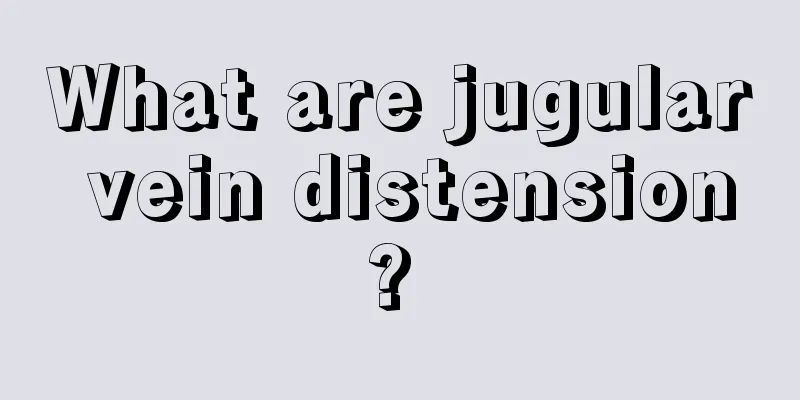What are jugular vein distension?

|
Distended jugular veins are quite common in our daily life. For ordinary people, when we sit normally, the external veins in the neck are generally not visible. They will only be slightly visible when we lie flat. However, for patients with this disease, the jugular veins are prone to filling, causing symptoms of full and swollen veins. This indicates that the venous pressure is relatively high, which is an abnormal phenomenon. At the same time, it also reflects the pressure of the right atrium, and changes in its capacity, which is quite harmful to patients. It can easily cause right heart failure and some organic lesions, such as pulmonary embolism, chronic cor pulmonale, etc. Therefore, such growth should be treated in time. Cause classification 1. Various organic diseases that cause right heart failure: chronic cor pulmonale, pulmonary embolism, congenital heart disease including primary pulmonary hypertension, pulmonary valve stenosis, E-bstein malformation, Eisenmenger syndrome, rheumatic heart disease including tricuspid stenosis and/or tricuspid regurgitation, restrictive cardiomyopathy; 2. It is mainly a manifestation of increased systemic venous pressure. In a semi-recumbent or sitting position, a full external jugular vein can be seen above the clavicle, with a positive truncal reflux sign. When the enlarged liver is compressed, the fullness of the jugular vein can be seen increasing, which is an early manifestation of right heart failure. In severe cases, fullness and distension can also be seen in the patient's arms or other superficial veins. ; 3. Pericardial diseases: pericardial effusion, constrictive pericarditis. mechanism When the above reasons cause the right atrial volume to increase or the pressure to rise, venous congestion and increased venous pressure, and obstruction of superior vena cava return, jugular vein distension may occur. 1. Right heart failure: cor pulmonale, congenital heart disease and rheumatic heart disease can all lead to excessive right ventricular preload and cause right heart failure, resulting in congestion in the systemic circulation; 2. Limited filling of cardiac chambers: Under normal circumstances, the pressure in the pericardial cavity is lower than atmospheric pressure, and also lower than atrial pressure and ventricular diastolic pressure. When pericardial exudate accumulates rapidly and/or the amount of exudate exceeds a certain level, the intrapericardial pressure rises sharply, or the pericardium thickens and stiffens. Fibrosis causes the pericardium to narrow, compressing the entire heart and the outlets of large blood vessels, hindering ventricular relaxation and filling, affecting blood return to the right heart, and increasing venous pressure; 3. Obstruction of the superior vena cava blocks the reflux of the superior vena cava and causes distension of the jugular vein. |
<<: What are the precautions for injecting polio vaccine
>>: What are the causes and precautions for white spots on teeth
Recommend
What stage of lung cancer is a 7mm lung nodule?
Generally, a 7mm lung nodule refers to a small no...
Are succulents effective in protecting against radiation?
In fact, there are various anti-radiation methods...
What is the cause of sore throat and ear pain
With the worsening of environmental pollution, mo...
Reasons why lung cancer patients experience chest tightness and shortness of breath
Lung cancer patients have symptoms of dyspnea and...
Tips for treating betel nut stuck in throat
Many people in our daily life like to eat betel n...
What are the complications after radiotherapy for laryngeal cancer
Laryngeal cancer is a malignant tumor that occurs...
What harm does nicotine do to the human body?
As people's living standards continue to impr...
What are the dangers of liver radiofrequency ablation surgery?
In recent years, the incidence of liver cancer ha...
What are the symptoms of lung metastasis in patients with nasopharyngeal carcinoma and how to prevent it
As environmental pollution worsens, the number of...
Why does the water from the water heater have a bad smell?
Most households now have water heaters installed,...
What are the symptoms of mixed hemorrhoids?
Mixed hemorrhoids are a type of hemorrhoids, also...
Artificial urticaria symptoms
Friends who have experienced skin allergies know ...
There are little red spots on my arms
Human skin is naturally flawless, but with the pa...
We can't ignore the common symptoms of brain cancer
Many patients do not know they have brain cancer ...
Why are my feet and floors itchy?
Disease is a very common situation in people'...









